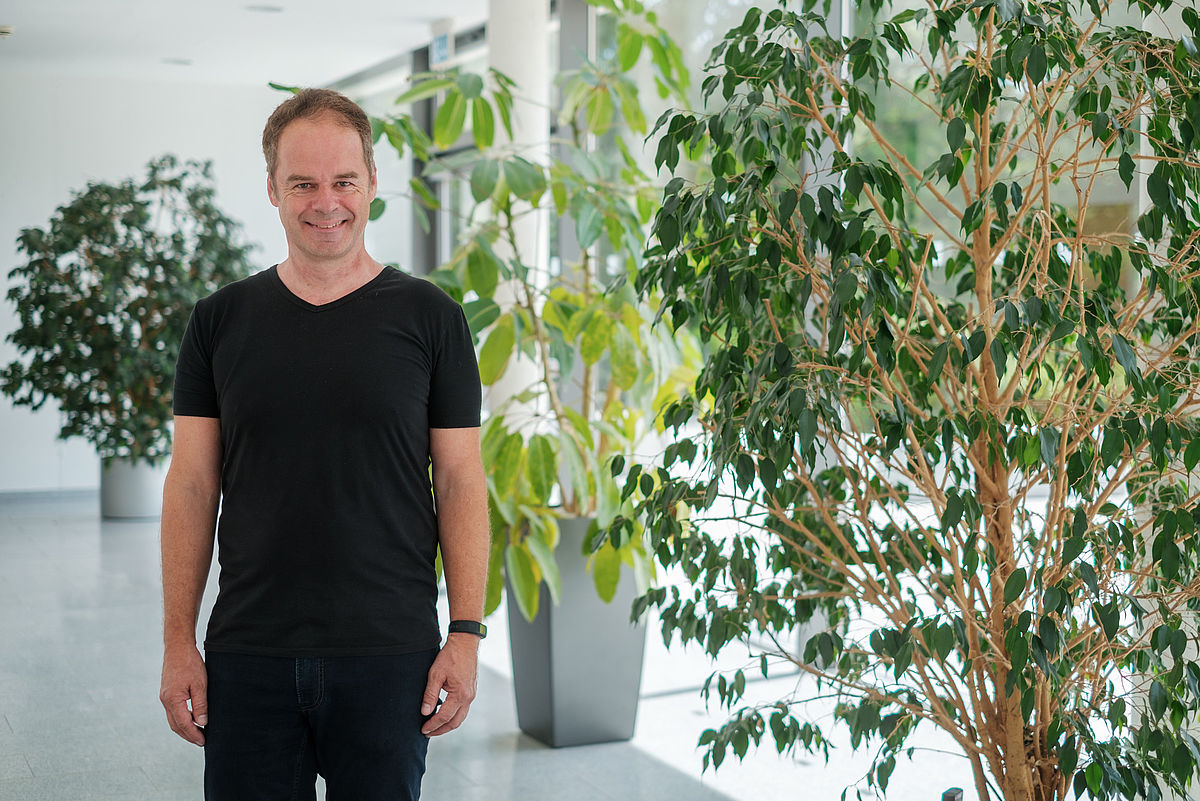Fake news is not quite as easily identifiable as the picture above suggests. Symbol photograph: Colourbox
Luise Haack, head of International Support Services at the University of Passau, asks herself how we should handle misinformation and fake news about the Ukraine war intelligently and responsibly. Her reflections were occasioned by a false report that had caused some commotion among Russian students as it purported that they would soon be de-registered from university. The report had been disseminated by the German version of the Sputnik website which belongs to the state's Russian news agency Rossiya Sevodna.
Communication scholar Professor Ralf Hohlfeld, who does research on
,has an answer. From 2012 to 2015, he was in charge of the , a project about the modernisation of the Ukrainian and Moldavian degree programmes in journalism and the freedom of the media in Eastern Europe. In the week after Russia attacked Ukraine, he helped his Ukrainian colleague and former project collaborator Dr. Anna Sarmina escape to Passau (Check out the related BR2 "Tagesticket" podcast).How do I recognise fake news? First of all, you need to use your common sense and ask yourself whether what is being alleged can really be true. What makes fake news so treacherous is that it's not completely fabricated but has a kernel of truth somewhere. In this case, the fact that German research organisations had cut their ties with Russia. From this angle, it certainly might seem plausible that Russian students could be affected as well.
The next point that should be verified is the source. Whenever a report originates from Sputnik or other similar propaganda websites, you should be suspicious and do an online search to check whether respectable media outlets are reporting the same. Furthermore, there are a number of different tools that journalists use to substantiate the truthfulness of images and videos doing the rounds on social media. They include the Google Images search engine that can be used to verify whether a particular image has been published online in any other context before.
In our case, however, the Russian students basically did everything right: they got to the bottom of the matter themselves, contacted the administration of the university and asked the people responsible whether there was any truth in the report. The report was quickly labelled as what it is: fake news.
In the specific example at hand, the target group was a small, clearly defined group of recipients: our Russian students. In such a case, I would recommend communicating proactively, for example by making a public announcement and clearly stating that the discontinuation of research relations will have no effect on teaching. Quite the contrary is true: we see it as our obligation, particularly in teaching, to lend our support to our Russian students who have voluntarily decided to make their way to freedom and join us.
In fact, we have been able to prove in studies that corrections exacerbate the effect of fake news. Just as the maxim goes: I only need to hear it often enough, even in denials, to start to believe that it's true."
Professor Ralf Hohlfeld, University of Passau
In other cases, when disinformation is widely disseminated, such public corrections, which we call debunking in communication studies, may prove to be counterproductive. They actually contribute to the further dissemination of disinformation. In other words, the fish continues to stink, and a correction will not help me get rid of the smell. In fact, we have been able to prove in studies that corrections exacerbate the effect of fake news. Just as the maxim goes: I only need to hear it often enough, even in denials, to start to believe that it's true.“
What are your questions regarding the attack on Ukraine? Write us: frag-die-wissenschaft@uni-passau.de - We'll forward your questions and publish answers provided by researchers here as soon as we can




